MEG
Recent articles
Noninvasive technologies can map and target human brain with unprecedented precision
But to fully grasp the tools’ potential, we need to better understand how electric and magnetic fields interact with the brain.
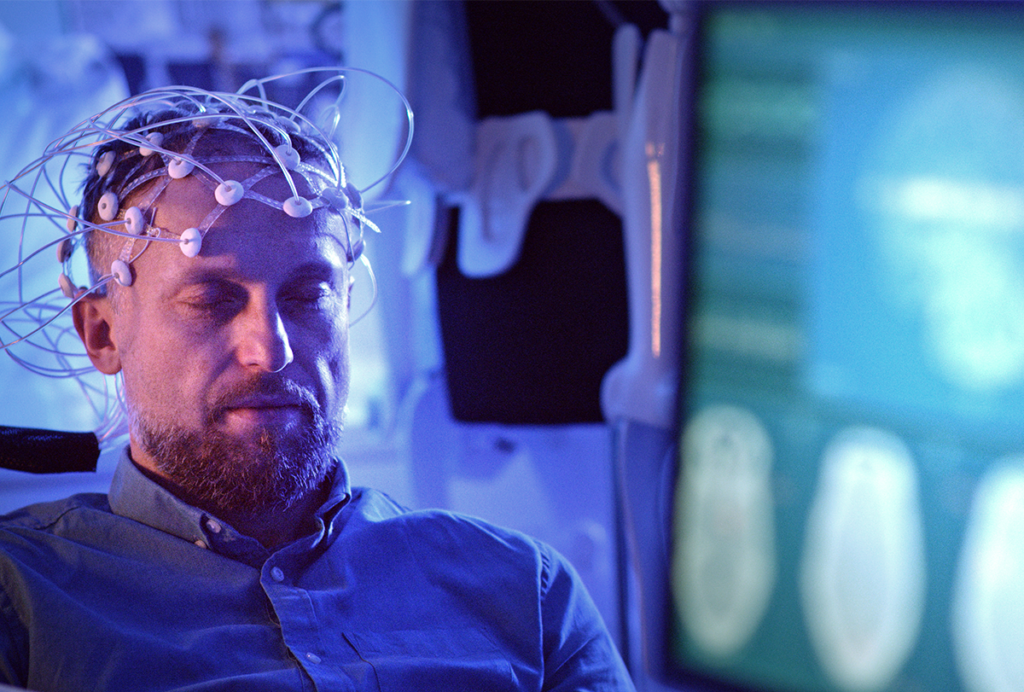
Noninvasive technologies can map and target human brain with unprecedented precision
But to fully grasp the tools’ potential, we need to better understand how electric and magnetic fields interact with the brain.
Simply making data publicly available isn’t enough. We need to make it easy — that requires community buy-in.
I helped create a standard to make it easy to upload, analyze and compare functional MRI data. An ecosystem of tools has since grown up around it, boosting reproducibility and speeding up research.

Simply making data publicly available isn’t enough. We need to make it easy — that requires community buy-in.
I helped create a standard to make it easy to upload, analyze and compare functional MRI data. An ecosystem of tools has since grown up around it, boosting reproducibility and speeding up research.
Auditory cortex may develop early in autism
A well-studied brain response to sound appears earlier than usual in young children with autism.
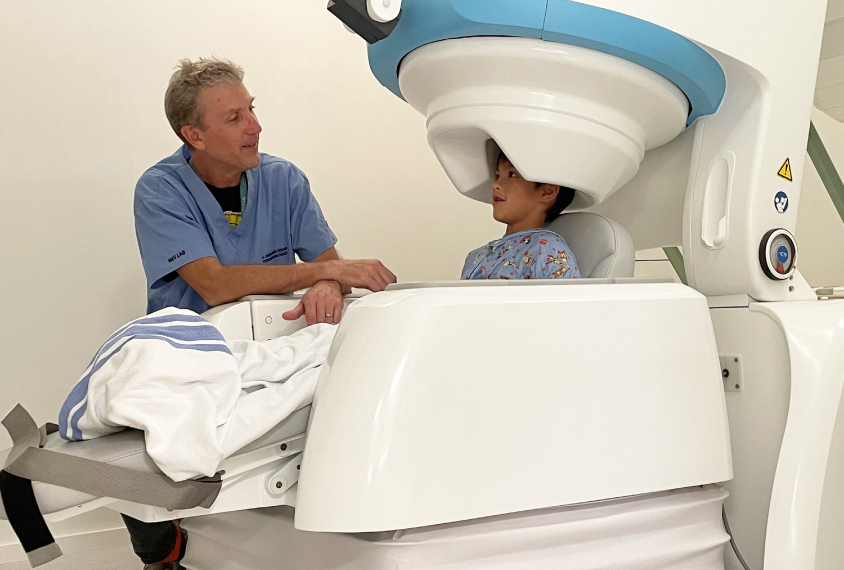
Auditory cortex may develop early in autism
A well-studied brain response to sound appears earlier than usual in young children with autism.
Making neuroimaging accessible for more autistic children
A new protocol aims to help researchers include more autistic people — especially those who are minimally verbal or have intellectual disability — in imaging studies.
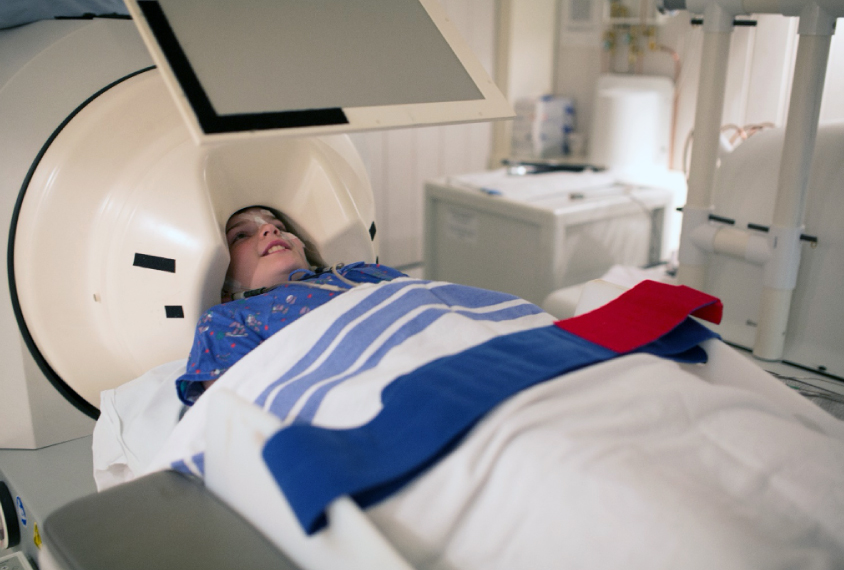
Making neuroimaging accessible for more autistic children
A new protocol aims to help researchers include more autistic people — especially those who are minimally verbal or have intellectual disability — in imaging studies.
Confusion at the crossroads of autism and hearing loss
Hearing difficulties and autism often overlap, exacerbating autism traits and complicating diagnoses.
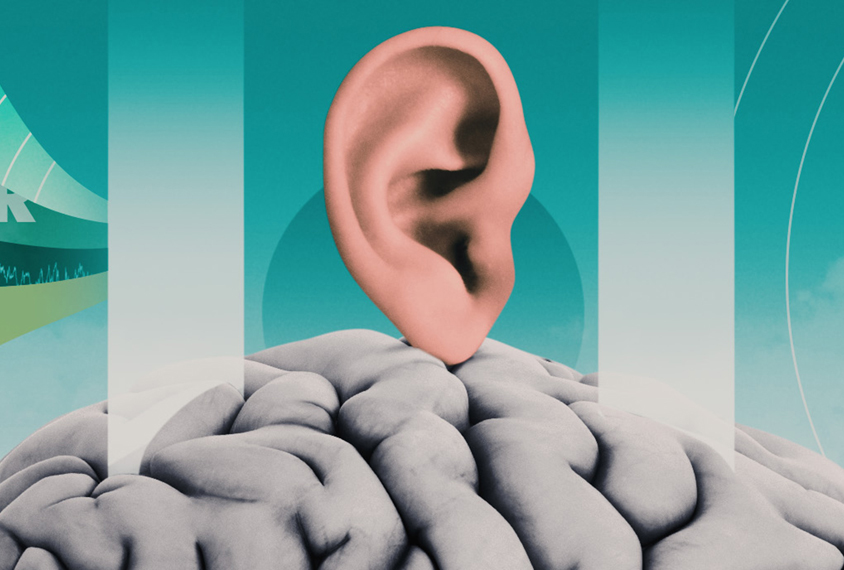
Confusion at the crossroads of autism and hearing loss
Hearing difficulties and autism often overlap, exacerbating autism traits and complicating diagnoses.
Autistic children’s auditory delays may persist into adulthood
A delay in autistic children’s brain responses to sound may continue into adulthood.
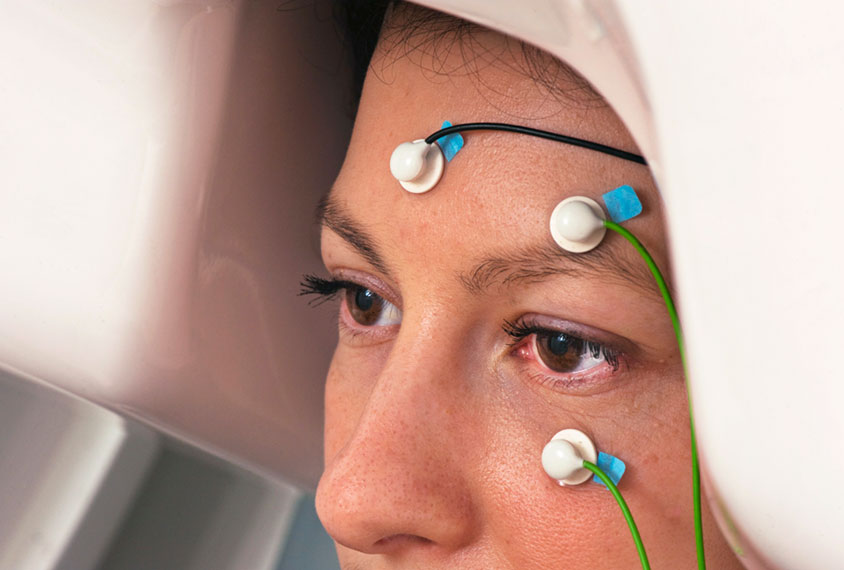
Autistic children’s auditory delays may persist into adulthood
A delay in autistic children’s brain responses to sound may continue into adulthood.
Modified bike helmet scans brains of people in motion
A magnetic scanner fitted within an ordinary bicycle helmet may make it easier to visualize autistic children's brains.
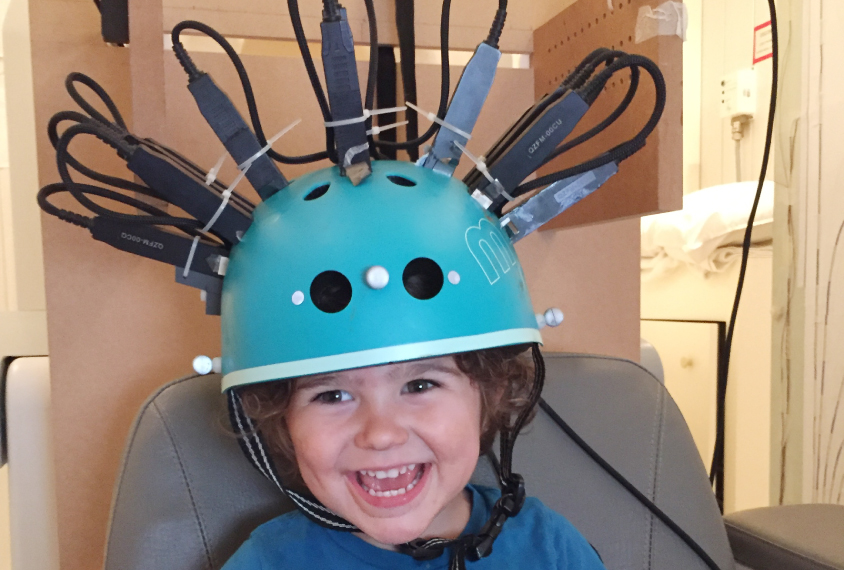
Modified bike helmet scans brains of people in motion
A magnetic scanner fitted within an ordinary bicycle helmet may make it easier to visualize autistic children's brains.
Brains of minimally verbal autistic children respond slowly to sound
Several of the brain’s responses to sound are sluggish in autistic children who speak few or no words, compared with those who are verbal.
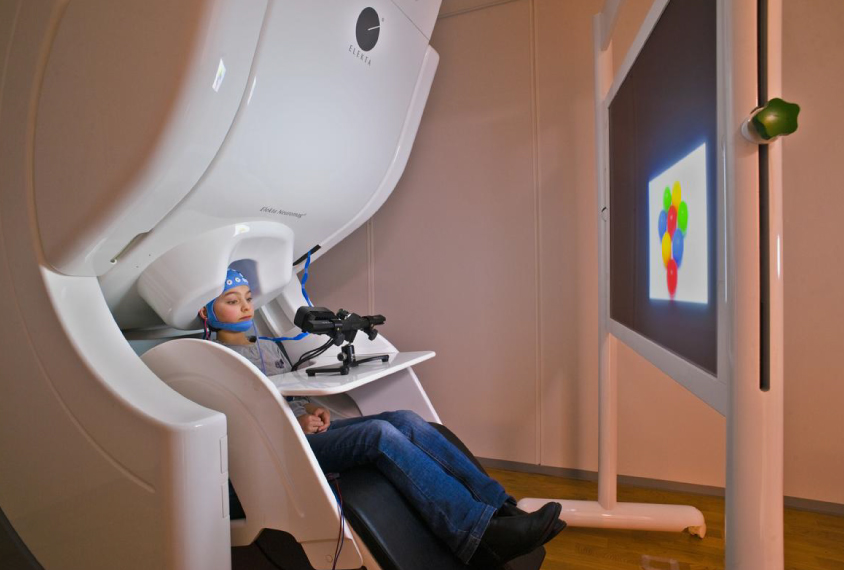
Brains of minimally verbal autistic children respond slowly to sound
Several of the brain’s responses to sound are sluggish in autistic children who speak few or no words, compared with those who are verbal.
In quest for autism biomarkers, this technique has magnetic appeal
To find biological markers of autism, scientists would be wise to measure the brain's electrical activity along with the resulting magnetic fields.
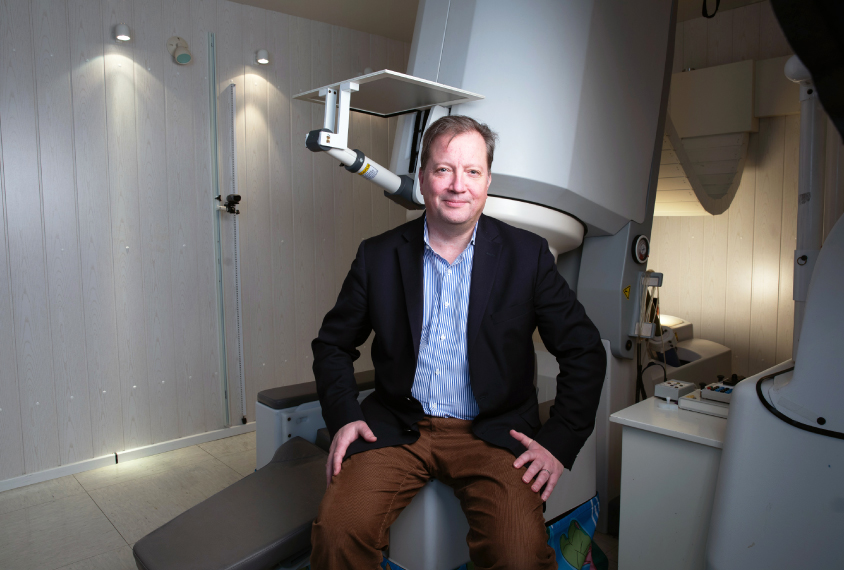
In quest for autism biomarkers, this technique has magnetic appeal
To find biological markers of autism, scientists would be wise to measure the brain's electrical activity along with the resulting magnetic fields.
Autistic children may have to mute own perspective to grasp others’
To understand another person's point of view, children with autism may need to actively suppress their own.
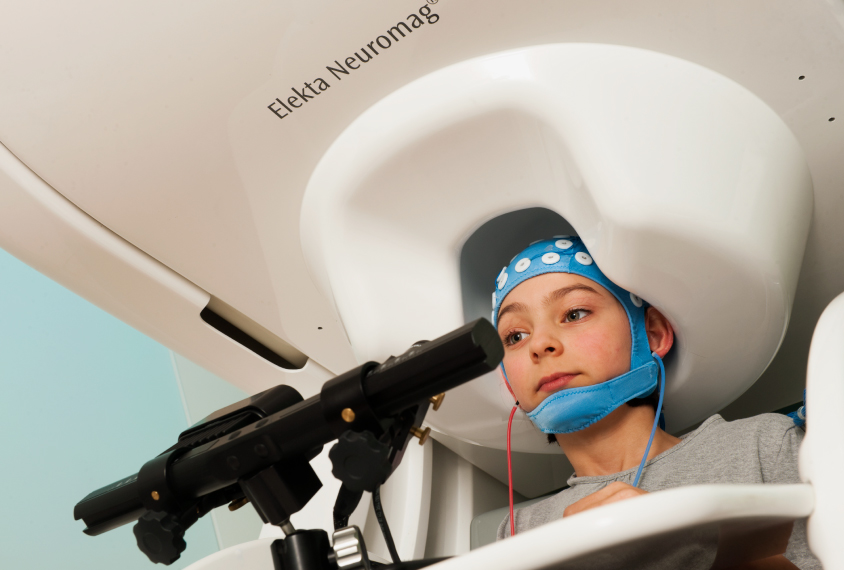
Autistic children may have to mute own perspective to grasp others’
To understand another person's point of view, children with autism may need to actively suppress their own.
Explore more from The Transmitter
Lack of reviewers threatens robustness of neuroscience literature
Simple math suggests that small groups of scientists can significantly bias peer review.

Lack of reviewers threatens robustness of neuroscience literature
Simple math suggests that small groups of scientists can significantly bias peer review.
Dendrites help neuroscientists see the forest for the trees
Dendritic arbors provide just the right scale to study how individual neurons reciprocally interact with their broader circuitry—and are our best bet to bridge cellular and systems neuroscience.

Dendrites help neuroscientists see the forest for the trees
Dendritic arbors provide just the right scale to study how individual neurons reciprocally interact with their broader circuitry—and are our best bet to bridge cellular and systems neuroscience.
Two primate centers drop ‘primate’ from their name
The Washington and Tulane National Biomedical Research Centers—formerly called National Primate Research Centers—say they made the change to better reflect the breadth of research performed at the centers.

Two primate centers drop ‘primate’ from their name
The Washington and Tulane National Biomedical Research Centers—formerly called National Primate Research Centers—say they made the change to better reflect the breadth of research performed at the centers.